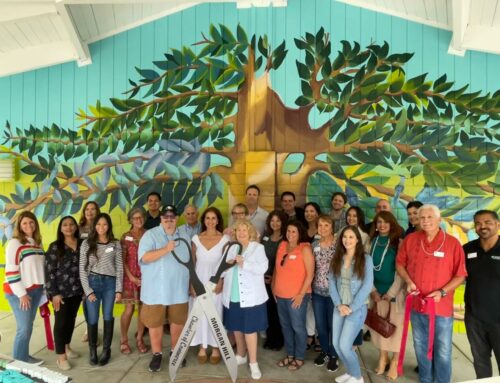If the children are three and five years old, clients need to think about the age and health of the guardians
![]()
By James Ward

James Ward
What happens when a child or youth younger than 18 loses both parents? It’s easy. The state steps in and assigns a guardian through the court system. If that doesn’t work, the child goes to foster care.
Really? Is that what you want? What if family members want to be guardians, but they disagree on who should be named? What about naming a guardian in advance just in case? What about naming more than one guardian just in case?
 One recent client told me this was a huge issue for him and his wife because she wants her mother to be the guardian and raise the kids, and he wants his mother to be the guardian and raise the kids. Since the court doesn’t know the family or the family dynamics, how will they decide? Will the decision from the court be the best choice for them?
One recent client told me this was a huge issue for him and his wife because she wants her mother to be the guardian and raise the kids, and he wants his mother to be the guardian and raise the kids. Since the court doesn’t know the family or the family dynamics, how will they decide? Will the decision from the court be the best choice for them?
I encourage clients to name the guardians of their choice. If the child or children are young, then I encourage them to name two, three, or four guardians so that we have alternates in case something happens and their first-choice guardian cannot serve.
What happens if the guardian you selected has advanced cancer at the time they’re supposed to be acting as guardian for a very active or difficult child or teenager? Can they serve? Having an alternate allows them to step aside without feeling so guilty.
If the children are three and five years old, clients need to think about the age and health of the guardians, and whether those guardians will still be able to serve properly for another 15 years until the youngest child turns 18.
Yes, yes, we hope the guardians never need to serve, but hope isn’t the best strategy. Accidents and bad surprises happen.
 More and more, I’m seeing cases where the grandparents are the guardians because one parent of the child has died, and the other parent simply cannot function as a responsible parent due to mental health issues or drug abuse issues.
More and more, I’m seeing cases where the grandparents are the guardians because one parent of the child has died, and the other parent simply cannot function as a responsible parent due to mental health issues or drug abuse issues.
In many cases, things seem to be going well, the grandparents seem to be doing a good job of raising the child and caring for the child, and they are financially sound and can afford to care for the child, but what if something happens to them?
In one case, it was a long court battle before the court finally awarded guardianship of the five-year-old child to the grandparents, and then the drug addicted parent left the state.
What happens if there’s an accident and the grandparents die or can’t serve? Does the child then go to the drug addicted parent who wants the child so they can get government support payments to use for the purchase of more drugs?
I encourage the guardians in those cases to see if the court can name an alternate guardian or two so that the child is better protected — just in case.
I just had a case like this. My client was the grandmother, and the court had awarded her guardianship of the young child who had lost one parent and the other couldn’t function as a responsible parent.
The grandmother had been happily raising the child for years. The grandmother was caring and had significant financial resources, but then she became ill, went to the hospital, and died. These things happen.
Well, the uncle of the 16-year-old granddaughter had been living with them, and he and his sister planned to keep raising the child and caring for her until she turned 18, but they had no legal authority and were having massive problems with the school because the school wouldn’t allow them to make any decisions for the child. Everyone was in a bind, but the school was right. The school can’t look at the aunt or uncle and say, “You look like a nice person, so we’ll let you make all of the decisions for the child.”
No. A guardian must have legal authority to act as such.
Plan ahead. Don’t let children sit in limbo, get raised by the wrong person, or get pushed into the foster system when better alternatives exist.






